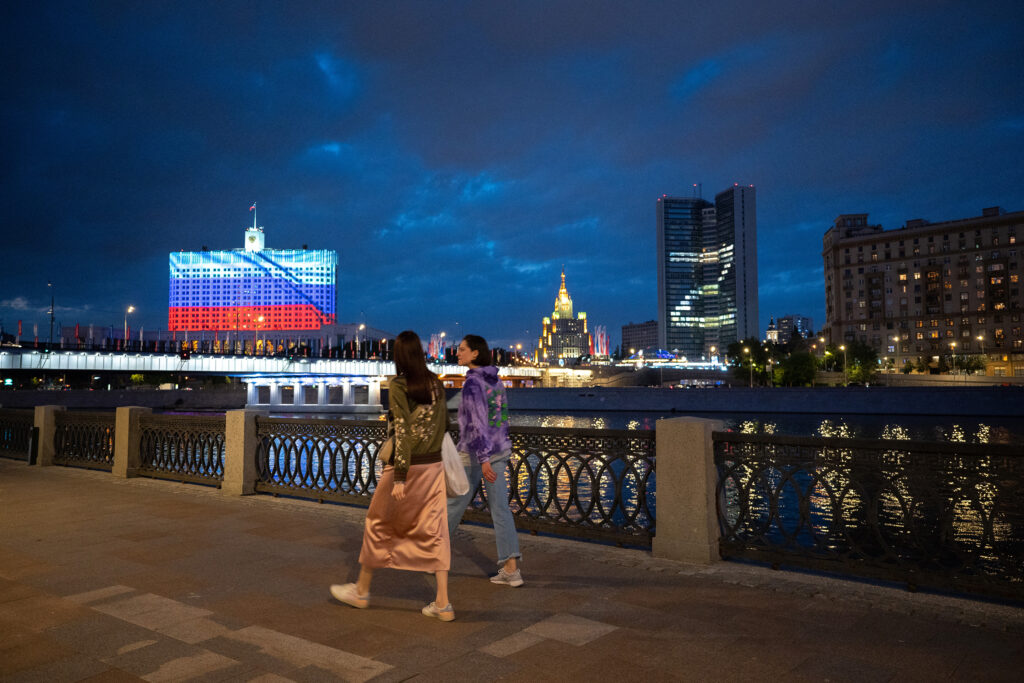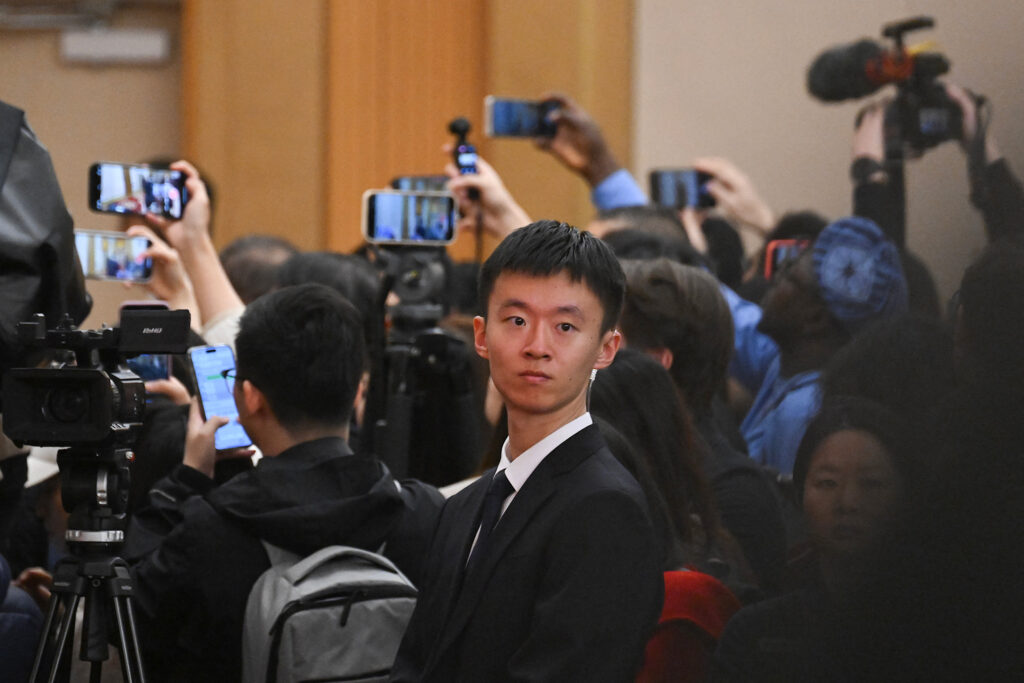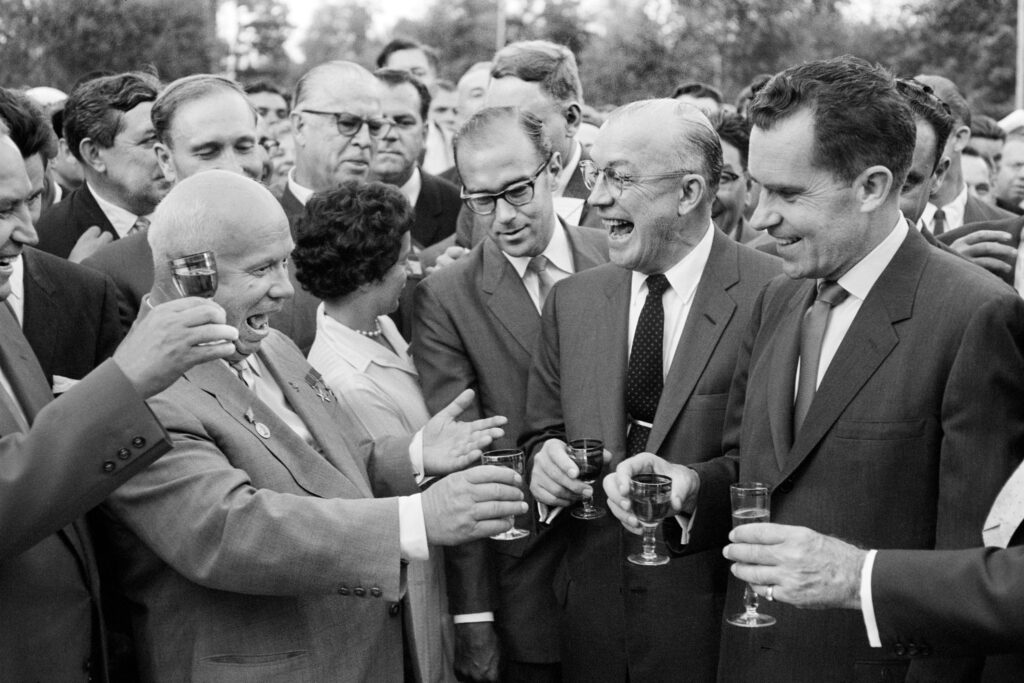Analyses of Russia’s brutal, unyielding war against Ukraine tend to have limited shelf lives. The pundits’ race for novel argumentation has attenuated as the war grinds on. Minds are made up about the war’s conduct and what it has meant for Russia. Solomon Petrov and Veronika Travina (pseudonyms of a writer and researcher who authored this issue’s lead piece) believe that we can do better. Through on-the-ground interviews with everyday Russians, they examine the shifting ideological commitments of the middle class and the ways in which the war refracts cultural production. Their essay offers unanticipated insights into the changes afoot in Russian society, an analysis with a much longer shelf life than your typical fare.
From Russia to China: in our next essay, the journalist Li Jun assays the architecture of the Chinese media space. What we thought we knew about information in the Chinese context was likely only half right; Li Jun panoramically fills in the gap.
And Daniel Bessner, part of an impressive new wave of twentieth-century historians of foreign policy, takes stock of two recent works in the field of Cold War studies by Sergei Radchenko and Anders Stephanson. Bessner deftly situates these important contributions within the wider historiography and finds that the field is returning attention to the two superpowers, with much more blame for the Cold War apportioned to the US than before.
For our curated content, we lead with Richard M. Eaton’s cogent illumination of Hindutva’s gross distortions of its own Mughal past, which amounts to historical malpractice. We follow with an interview with Émile P Torres, who delivers a critical reading of the modish concepts of longtermism, transhumanism, extropianism, and cosmism, and how much their current usage has been buttressed by the right-wing techno-dystopian crowd. And we conclude by bringing it all back home—to Mauritius, a country on the frontlines of the climate catastrophe, with Ariel Saramandi’s brilliant essay published by our friends at The Dial.
Our musical selection this week was inspired by Adam Shatz’s elegant profile of Amina Claudine Myers. A stalwart member of the esteemed collective of progressive musicians—the Association of Advanced Creative Musicians (AACM), Myers’s wordless composition, “African Blues,” from her 1980 record, Amina Claudine Myers Salutes Bessie Smith entrances and mystifies.
—Leonard Benardo, senior vice president at the Open Society Foundations
Russia Refracted

Solomon Petrov and Veronika Travina
The Ideas Letter
Essay
There are two dominant narratives regarding Russian society today: the Kremlin’s image of a united, mobilized people backing the war in Ukraine, and the liberal opposition’s view of a fearful, fragmented population mired in opportunism. Neither is entirely true, as Russia is made up of diverse groups with varied interests, some alienated by the war and others energized by it. Most strikingly, certain groups have used this moment not to lose themselves but to forge a new sense of civic agency amid the upheaval. Studies of Russian wartime society by the research groups Public Sociology Laboratory (PS Lab) and Alameda show how the ideological commitments of the middle-class beneficiaries of war are changing.
“Although opposing the liberal pro-Western view that sees it as little more than a cowed population, the nationalist middle class is not a violently mobilized people demanding absolute victory over the enemy while promoting the Kremlin’s imperial ideology. The unexpected conclusion of PS Lab’s sociological research is that we are not dealing with a right-wing radicalization of the middle class, but with the politicization of a rather moderate, bourgeois agenda unfolding in a situation marked by economic development, friendly competition with the West, and the rise of a “soft” patriotism for Russia, which is seen as a modern nation-state rather than an expanding empire. This is not an ideological conversion to an imperial ideology, but a profound intensification of the old liberal-conservative agenda promoted by Putin in his early years in power and later by the protest movement of the 2010s that was led by Alexei Navalny.”
China’s Independent Media
One Wall, Two Worlds

Li Jun
The Ideas Letter
Essay
China’s independent media has been largely dismantled under President Xi Jinping, but grassroots bloggers, exiled journalists, and small online communities continue to carve out fragile spaces for free expression. Despite censorship, harassment, and the Great Firewall, citizen-led media projects persist, blending activism and journalism to resist state narratives. These dispersed but resilient efforts highlight both the enduring appetite for independent information among Chinese citizens and the global importance of supporting their fragile voices.
“On the mainland, as institutional media have been neutered and private outlets steadily shut down, what remains of critical Chinese journalism now takes the form of small, decentralized groups. They are de-institutionalized (and to some degree de-professionalized), highly vertical—meaning they focus on specific issues or communities—and unevenly scattered across the social-media landscape. … But all of these efforts are temporary, random, unstable. No single outlet is likely to have a wide readership or the ability to mobilize the public—which is precisely why they are able to survive amid the stringent censorship enforced within the Great Firewall. Once any inspires people to engage in heated discussions on public issues or participate in offline activities, even if those remain circumscribed to cultural activities, it will be harassed, and face censorship and the threat of being closed. Having a stable brand is a luxury.”
Whose Fault Was the Cold War?

Daniel Bessner
The Ideas Letter
Essay
Bessner traces shifts in Cold War historiography through his review of two recent works on the causes and lessons of the US-Soviet rivalry. Anders Stephanson argues that the Cold War was largely an American project, driven by an ideology of American exceptionalism and a delegitimization of the Soviet Union. Sergey Radchenko meanwhile portrays Stalin as the ultimate realist in search of security. Together, the books show how US foreign policy in the early Cold War revolved to a significant degree around “spheres of influence” and whether Americans should respect them. It is a question that is all-too-relevant again as a new great power contest draws in the US and China.
“Truth be told, the issue of spheres of influence raises difficult questions for those, like myself, who are simultaneously committed to a universalistic humanism and anti-imperialism. … Any leftist or liberal must insist that the demoi of the world’s nation-states should be allowed to determine their future absent coercion. It would have been better, from a humanist perspective, if the East Germans, the Hungarians, and Czechoslovakians—and, one might add, the Iranians, Guatemalans, and Chileans—had been able to decide what type of government they wanted without outside interference. … At the same time, however, we don’t live in a just world—we live in this one, where interest and power matter more than ideals. It is simply a fact of international relations that some things matter more to some nations than others.”
India’s War on the Mughal Empire
Richard M. Eaton
Engelsberg Ideas
Essay
The Mughal Empire’s enduring legacy in India is being systematically undermined by the current government’s Hindu nationalist ideology. This purge extends beyond altering school curricula to erasing references to the Mughals from textbooks, tourism materials, and even renaming historic sites to align with Hindutva. The result is a profound danger in destroying the rich cultural synthesis that has long shaped India’s pluralistic identity. Eaton traces the history of the narrative of antagonism.
“As the East India Company attained control over South Asia in the late-18th century, British administrators, being unable as foreigners to deploy a nativist rationale to justify their rule, cited the efficiency, justice, peace and stability that they had brought to their Indian colony. And because the Mughals had immediately preceded the advent of Company rule, those rulers were necessarily construed as having been inefficient and unjust despots in a war-torn and unstable land. The colonial understanding of Muslims and Hindus as homogeneous and mutually antagonistic communities also facilitated aligning colonial policies with the old Roman strategy of divide et impera. More perniciously, the colonial view of the Mughals as alien ‘Mahomedans’ who had oppressed a mainly non-Muslim population reinforced the notion of a native Hindu ‘self’ and a non-native Muslim ‘other’ – constructions that would bear bitter fruit.”
The Curious Sci-Fi Beliefs of the AI Tech Elite
An interview with Émile P. Torres
Tom Midlane
Tribune Magazine
Interview
Torres coined the term TESCREAL (Transhumanism, Extropianism, Singulatarianism, Cosmism, Rationalism, Effective Altruism, and Longtermism) to capture a cluster of overlapping ideologies that recast tech elites as humanity’s heroic saviors. A former believer, Torres discusses the differences between these philosophies and how they’ve been instrumentalized to the benefit of rightwing oligarchs.
“What transhumanists are really all about is how shitty being human is. You know, ‘It sucks to have this meat sack. We’re so dumb. We can only move so fast. We can only process information so quickly. We only live so long. It’s just an awful situation. We need to transcend that through technology and then we’ll get to something that’s really worthwhile.’ I just reject that. I like the way things are. I want to preserve this. I care about this.”
The Future of Climate Change Is on Mauritius
Ariel Saramandi
The Dial
Essay
Mauritius is already experiencing dramatic climate disruptions that defy global models and forecasts. The island is living a terrifyingly immediate version of climate futures many other places are only beginning to imagine. Saramandi lyrically exposes how these extremes are not distant threats but realities for communities whose environment and infrastructure are already under siege.
“I read books written mostly by white men in supremely rich countries on how to think about climate disaster. Some concepts I understand in my body: global warming as a hyperobject, heat like honey glistening all over my skin, so viscous that showering won’t remove the stickiness. … I read books that trace the contours of my lifeline. The statistics that predict our future, that suggest the manner of our deaths, the stages and degrees at which our bodies will gradually shut down.”
